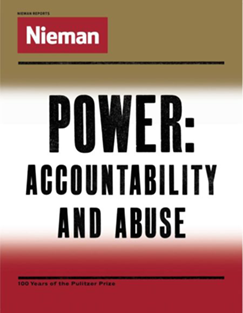Smith recalls his time as a member of the team at the Times that worked on the Pentagon Papers.
For three months, Neil Sheehan and I disappeared into the mass anonymity of a 24th- floor suite at the New York Hilton while we dug through 20 years of Top Secret/Eyes Only documents.
Hedrick Smith
By 1971, we had each had our fill of the dupery and deceptions of U.S. officialdom from generals in Saigon to the briefers in Washington. Like millions of Americans, we had lost faith in the government as well as the Vietnam War.
What we quickly learned was that behind his confident façade, Defense Secretary Robert McNamara had undergone his own soul-searching disenchantment. Understanding that the war was lost, McNamara had commissioned a secret history of the war from Eisenhower through Kennedy to Johnson to find out what went wrong.
Disillusioned as we were, we were still shocked by how the files documented two decades of prevarications, double-dealing, and manipulations of friends, allies, Congress, and the American public by the highest U.S. officials. “Rick, another lie!” Sheehan would shout as he pounced on some new chicanery. “They were lying to us all the time.”
We decided not to tap the report’s “diplomatic annex” because that might endanger ongoing peace negotiations and we had no intention of risking harm to national security. But most of this vast trove amounted to a massive “after-action” report on military and political history that, however embarrassing to the U.S. government and its leaders, posed no threat to ongoing military operations or to national security.
Fearing discovery, we never used our own names on the phone or hotel records. We ordered and paid for everything in the name of Jerry Gold, a Times editor who led the team that selected the most telling top-secret documents for publication. And while we toiled in secrecy, the Times masthead leadership was embroiled in a monumental battle.
Executive Editor Abe Rosenthal, though a supporter of the war, was rock solid with us in arguing that publishing the Pentagon Papers was an essential mission of the media—to hold three presidential administrations to account.
The darkest moment came when we heard that Lord, Day & Lord, the Times’s venerable law firm, had walked out, refusing to defend the Times and warning publisher Arthur Sulzberger that publishing the Pentagon Papers would be illegal and perhaps treasonable.
But advocates of publication had a powerful ally in Scotty Reston, the legendary Times columnist whose personal influence with the Sulzberger family was strong. Floyd Abrams, a noted First Amendment lawyer, was hired to prepare the legal case.
In his most courageous decision, the publisher decided to go-ahead. But lest he get cold feet at the 11th hour, Foreign Editor Jim Greenfield took the publisher for a round of golf on Saturday morning before the presses rolled. And on Sunday, June 13, 1971, the Times struck a blow for press freedom and public accountability of government for a war that had gone bad.


